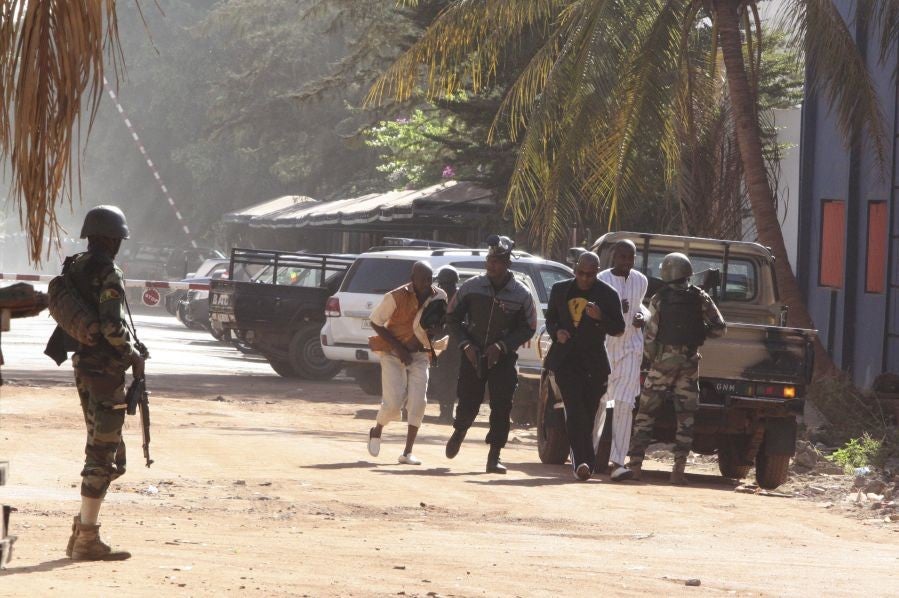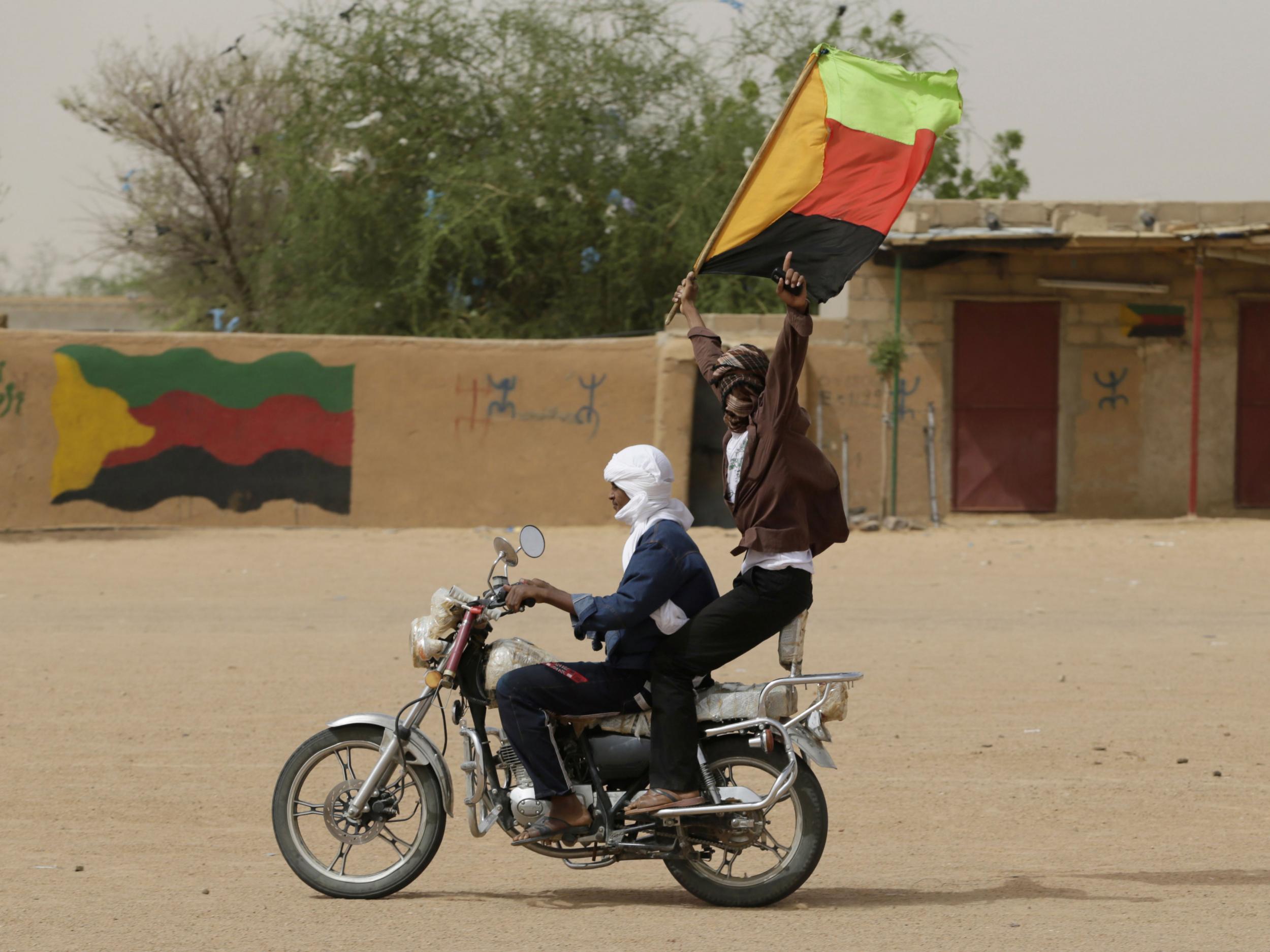Where is the Mali hotel attack taking place - and which terror groups are active in Bamako?
Mali has a complicated recent history of insurgency and jihadist attacks

Your support helps us to tell the story
From reproductive rights to climate change to Big Tech, The Independent is on the ground when the story is developing. Whether it's investigating the financials of Elon Musk's pro-Trump PAC or producing our latest documentary, 'The A Word', which shines a light on the American women fighting for reproductive rights, we know how important it is to parse out the facts from the messaging.
At such a critical moment in US history, we need reporters on the ground. Your donation allows us to keep sending journalists to speak to both sides of the story.
The Independent is trusted by Americans across the entire political spectrum. And unlike many other quality news outlets, we choose not to lock Americans out of our reporting and analysis with paywalls. We believe quality journalism should be available to everyone, paid for by those who can afford it.
Your support makes all the difference.Almost 200 people are currently being held hostage in Mali, after armed gunmen stormed a Radisson Blu hotel in the nation's capital of Bamako.
Where is Mali?
The Republic of Mali is a landlocked nation in West Africa, bordering the countries of Niger and Algeria.
It's a large and diverse country of around 15 million people, extending far into the Sahara Desert in the North but holding most of its population in the greener south.
Mali was a French colony after being seized in the late 19th Century, but gained its independence in 1960.
Does Mali have a history of insurgency?
Most of the recent troubles in Mali began in October 2011, when people from the Tuareg ethnic minority group formed the Azawad National Liberation Movement and began an insurgency against the Malian government, which they believe marginalised them.
Fighting between the groups continued, and the army eventually staged a coup against the government in March 2012 out of frustration over its handling of the rebellion.

The Presient, Amadou Toumani Touré was forced into exile, and Tuareg and al-Qaeda-linked forces seized control of the north of the country, the military failing in its promise to defeat the rebels.
In June 2012 more Islamist groups entered the fray, capturing major cities.
In January 2013 the French military intervened, fighting Islamist militants at the request of the Malian government.
In June that year a peace deal was achieved with the Tuareg rebels, and 120,000 UN troops were handed the responsibility for pushing out the Islamists and taking back northern towns.
However, the peace deal broke down in December 2013 - later, France launched a new attack on Islamists in the country, and minor terror attacks, such as the shooting of five people in a Bamako machine-gun attack in March this year, increased in frequency.
The capture of the hostages in Bamako today by unidentified gunmen is the latest attack to hit the country.
What Islamist groups are currently active in Mali?
There is a long list of violent jihadist groups operating in Mali.
The major players are Ansar Dine, an al-Qaeda-linked group, the Movement for Unity and Jihad in West Africa, another al-Qaeda offshoot, al-Qaeda in the Islamic Maghreb, the Signed-in-Blood Battalion and the Islamic Movement of Azawad, which split from Ansar Dine. As well as these groups, many other smaller groups, which may have allegiances to larger organisations, also exist in the country.
Many of these groups are offshoots of larger organisations or even of one another, and are related in complicated networks of power across the country.
It is not known what the gunmen at the Bamako Radisson stand for, but according to early reports, the men shouted "Allah Akbar" as they stormed the building, and were letting hostages go if they were able to recite passages from the Koran.
Join our commenting forum
Join thought-provoking conversations, follow other Independent readers and see their replies
Comments